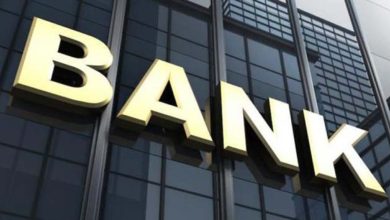Unlocking Prosperity: Infrastructure Investment in Nigeria
Unlocking Prosperity: Infrastructure Investment in Nigeria
Unlocking Prosperity: Infrastructure Investment in Nigeria
Infrastructure development plays a pivotal role in driving economic growth and improving the overall quality of life for citizens.
In Nigeria, a country with a growing population and increasing urbanization, infrastructure investment is of utmost importance.
In this blog, we will explore the significance of infrastructure investment in Nigeria, its potential impact on the economy, and the opportunities it presents for investors.
Additionally, we will discuss how infrastructure investment can pave the way for a brighter and more prosperous future for the nation.
The Importance of Infrastructure Investment in Nigeria**
1. Enhanced Economic Growth
Infrastructure investments, such as roads, bridges, airports, and ports, facilitate the movement of goods and people, promoting trade and economic activities. Improved transportation networks lead to increased productivity and attract investments from both local and foreign businesses.
2. Job Creation
Infrastructure projects create employment opportunities, benefiting local communities and reducing unemployment rates. As infrastructure developments progress, various job roles emerge, from construction workers to engineers, contributing to economic growth and social stability.
3. Improved Living Standards
Access to essential infrastructure, such as electricity, clean water, and healthcare facilities, significantly improves living standards for citizens. Properly planned infrastructure development can address social inequalities and enhance the well-being of the population.
4. Boost to Industry Sectors
Infrastructure investments support various industry sectors. For example, improved power infrastructure benefits manufacturing and industrial activities, while better telecommunications infrastructure fosters advancements in technology and communication.
5. Attracting Foreign Investment
A country with well-developed infrastructure is more likely to attract foreign direct investment (FDI). Investors seek stable environments with efficient transportation and utilities to support their operations, making infrastructure investment a crucial factor in attracting FDI.
Opportunities for Infrastructure Investment in Nigeria
1. Transportation Infrastructure
Nigeria requires significant investment in roads, highways, railways, and airports to enhance connectivity between regions and drive economic growth. Investors can explore opportunities in public-private partnerships (PPPs) for infrastructure development.
2. Power and Energy Infrastructure
Nigeria’s power sector demands substantial investment to meet the growing energy needs of its population and industries. Renewable energy projects, such as solar and wind, also present promising investment prospects.
3. Water and Sanitation Infrastructure
Investment in water supply and sanitation systems is essential to ensure access to clean water and improve public health. Private investors can participate in water treatment and distribution projects.
4. Healthcare Infrastructure
The healthcare sector requires investment to upgrade facilities and expand access to quality healthcare services. Investors can consider projects related to hospital construction and medical equipment supply.
5. Digital Infrastructure
With the rising demand for internet connectivity and digital services, investments in telecommunications and broadband infrastructure are crucial to support Nigeria’s digital transformation.
Conclusion
Infrastructure investment in Nigeria holds the key to unlocking prosperity and realizing the nation’s full economic potential. By improving transportation networks, power supply, healthcare facilities, and digital infrastructure, Nigeria can create an enabling environment for businesses to thrive and for citizens to enjoy a better quality of life.






